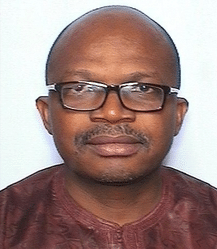Federal High Court sets judgement on 2019 election sequence for May 18

The Federal High Court, Enugu Division has set down the suit challenging the constitutionality of the bill by the National Assembly attempting to re-order the 2019 election sequence for ruling on May 18.
The suit filed by an APC chieftain, Chief Anike Nwoga at the Federal High Court, Enugu, challenges the power of the National Assembly to re-order the election sequence already set down by the Independent National Electoral Commission pursuant to the powers and functions conferred on the commission by the Constitution of the Federal Republic of Nigeria.
Representing INEC sued as the 2nd Respondent, Chineme Onuoma Esq, from the law firm Kenna Partners headed by Professor Fabian Ajogwu, SAN, argued that whilst not being opposed or in support of the suit filed by the claimant, it was important that INEC, as an independent body created by the Constitution, set the records straight by filing its response to the suit.
Mr Onuoma further argued that INEC in setting the election sequence for the 2019 general election acted within its constitutional powers as set out in Paragraph 15 (a) – (i) of the third schedule, Part I of the Constitution of the Federal Republic of Nigeria which confers on INEC the power to organise, undertake and supervise all elections to the offices of the President, Vice-President, Governor and Deputy Governor and even to the membership of the Senate, the House of Representatives and House of Assembly of each state of the Federation. Mr Onuoma argued that these powers conferred on INEC cannot be usurped by an amendment to the Electoral Act without first amending the Constitution.
The Solicitor General of the Federation, Mr Dayo Akpata representing the President of the Federal Republic of Nigeria and the Attorney General of the Federation (sued as the 3rd and 4th respondents) while citing relevant cases including Habib vs. AGF, AGF vs. ANPP and Attorney General of Bendel State vs. Attorney General of the Federation, argued that if in the exercise of legislative powers conferred on the National Assembly by the Constitution, there is a defect in the process leading to the passage of the bill, the bill would be deemed null and void.
Reacting to a question asked by the court on whether the suit is not academic in view of the President’s veto of the bill, Mr Akpata emphasized that case law makes it clear that a constitutional issue can never be termed an academic exercise. He further noted that as a Nigerian citizen, the plaintiff, Chief Anike Nwoga has the locus standi to institute a suit bordering on a breach of the Constitution. The Solicitor General also availed the court a copy of the recently delivered judgment of the Federal High Court, Abuja in a similar matter filed by Accord Party as a persuasive authority in delivering its judgment in the current matter.
The plaintiff’s counsel, Godwin Onwusi, urged the court to rule that the National Assembly has no power to compel INEC to conduct an election in a particular sequence and that even if the legislature had the power to do so, it had no power to change the timetable when a sequence had already been released by INEC for the same elections.
The National Assembly was unrepresented by legal counsel throughout the proceedings. Justice A.M Liman adjourned the matter to May 18 for judgment.
As Nigeria awaits the judgment of the Honourable Court, it is interesting to note that in a similar suit in Abuja, Justice Ahmed Mohammed ruled that only INEC has the powers to create an election template for the country and any attempt by the National Assembly to amend the Section 25 as done by lawmakers would first require a constitutional amendment.








